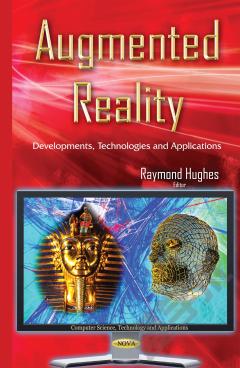Virtual Environments: Developments, Applications and Challenges
Virtual environments simulate a physical presence in places in the real world, as well as in imaginary worlds. Most current virtual reality environments are primarily visual experiences, displayed either on a computer screen or through special stereoscopic displays, but some simulations include additional sensory information, such as sound through speakers or headphones. In this book, the authors discuss the new developments, applications and challenges of virtual environments. Topics include measuring brain activation during spatial navigation in virtual reality; spatial representation of a multilevel building; user experience in a virtual art gallery; virtual environments in education; social networks and virtual environments from an adolescent point of view; and bringing skin observations to a higher level with 3D immersive virtual environments.
{{comment.content}}








 京公网安备 11010802027623号
京公网安备 11010802027623号